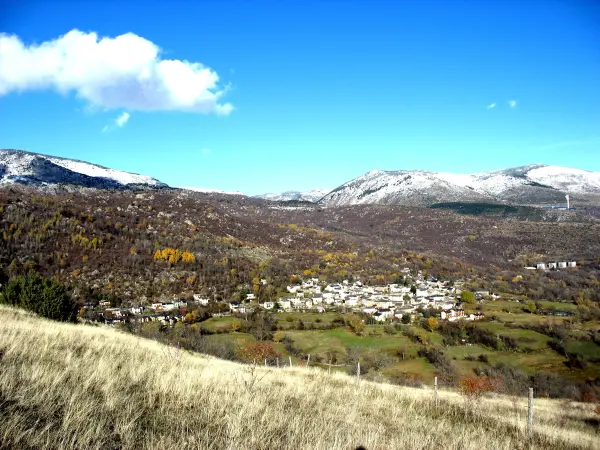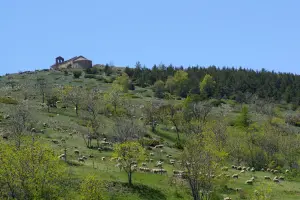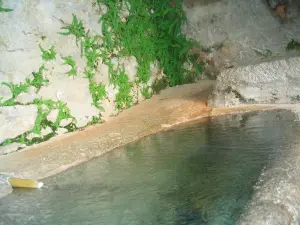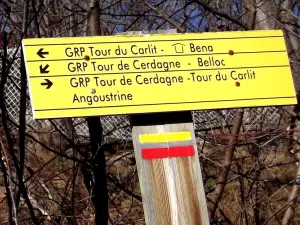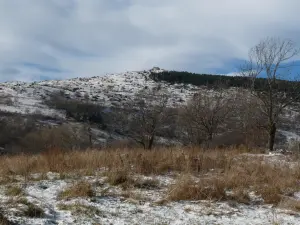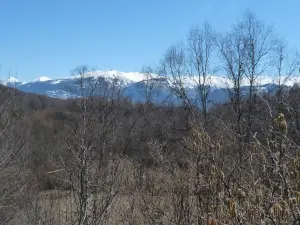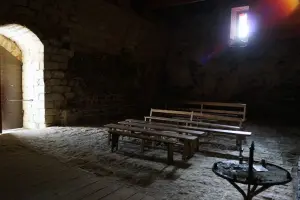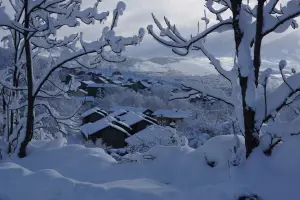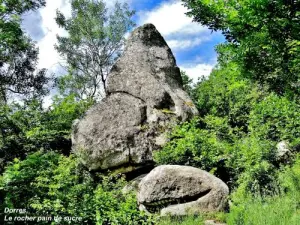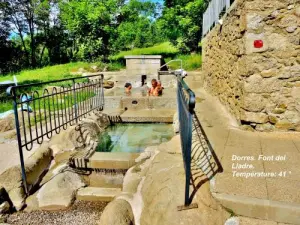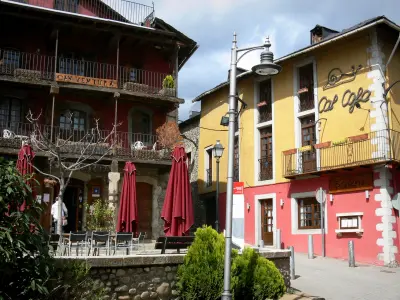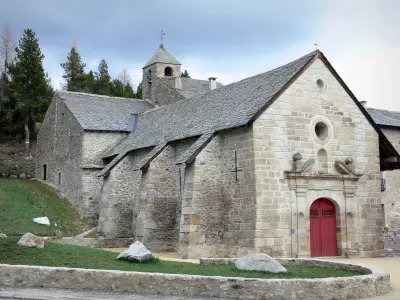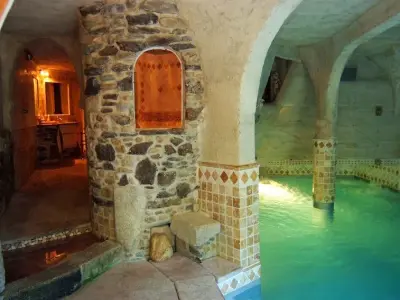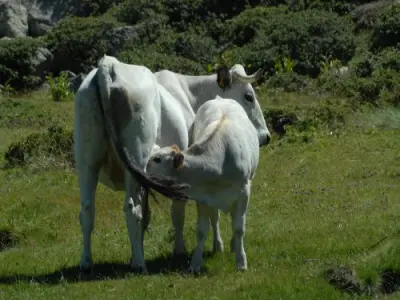Dorres is a municipality of the Pyrenees-Orientales, Occitanie region, but also in French Catalonia, 18 km west of the resort of Font-Romeu, on the borders of Spain, the Principality of Andorra and the department from Ariège.
The territory of the locality belongs to the cultural region of Cerdanya and Catalonia in general, and belongs to the medium or even the high mountain, ranging from 1332 to 2827 m of altitude, staggered on the sunny buttress (l adret) of the Carlit Massif.
Belonging to France since the fourteenth century following the Treaty of the Pyrenees, after being a stronghold of the bishop of Urgell, the village at 1400 m altitude has always been known for its pastoral agriculture (livestock, cheese production), its granite quarries and sulfurous hot springs that were already appreciated by the Romans.
Dorres which counts only about 170 inhabitants has preserved its patrimony and its environment that will appreciate during a stage or a few days of holidays the amateurs of green tourism.
Dedicated to St. John the Evangelist, the parish church in the heart of the village is one of the assets of Dorres in terms of heritage. Its construction began in the twelfth century (nave, side chapels) and continued in the thirteenth (south chapel, wall-bell tower). Romanesque style, it houses Baroque altarpieces, a beautiful black Virgin of the twelfth, "the Mare de Deù Bel-Lloc", venerated throughout the Cerdanya, and a statuette depicting "the Virgin with Seven Pains", dressed by the faithful and who was "walked" during processions. Finally, there is an astonishing "Decor of the Holy Week", a painted canvas in the shape of a castelet or stage set that was once installed during Holy Week to stage the death of Christ. Information on +33 4 68 04 60 69.
To the south-west of the village itself, the chapel Notre-Dame de Belloc overlooking the houses dates from the thirteenth century and was classified in 1980. We notice its Romanesque semicircular bedside, a door "south" rather Gothic and a beautiful bell-wall with three bays. Inside, the choir-shaped oven is also characteristic. Finally, still religious, the town has an oratory dedicated to the Virgin also called Mageta Chapel.
In another register but also constituting a part of the local inheritance, the Roman Baths below the village were built around a source of sulphurous hot water which springs at a temperature of 42 degrees. Appreciated for a long time, they still shelter remains dating back to the 17th century. Modern facilities of modern design, from which one enjoys an unparalleled view of the Puigmal massif, are set in a green setting. The relaxing virtues of outdoor baths (in pools or baths) are particularly popular hikers after a long walk in the mountains... Open every day except November. Price: 3.50 and 5 euros. Information on +33 4 68 04 66 87.
Another wealth of the subsoil of the town has also given rise to the opening in 1999 of the House of Granite (or museum of Granite), in the village, where is presented the history of the know-how of the Stonecutters since the 18th century (tools, photos and old documents). The Maison du Granit is open in summer from mid-June to mid-September from Tuesday to Saturday. Guided tour possible, as well as the parish church. Information on +33 4 68 04 60 69.
The verdant environment with its remarkable fauna and flora, but with the sometimes demanding terrain of the locality, is obviously a paradise for hikers.
Several circuits are marked and marked on the territory. A first loop leads to the chapel of Belloc, a second to the hamlet of Brangoly (where we can see a dolmen), a third to the lake Lanoux.
Other routes starting from the village and its traditional dwellings and including the various sites of the locality but leading to peaks or more distant points (like the border) are accessible. Maps and information on +33 4 68 04 15 47.
Combining pleasure of the hike and "duty of memory", a path says Escape is also dedicated to the Resistance who won Free France via Spain.
During a walk in the vicinity of the village, it is finally possible to visit a traditional cheese factory specialized in the production of tomes with raw milk and cottage cheese. Open every day except Wednesday. Contact at +33 4 68 30 08 82.
Hiking on the Bouillouses natural site, Lake Lanoux, the Eyne valley, the Porté-Puymorens valley and its lakes, mountain biking, horse and pony rides, paragliding, alpine or Nordic skiing, biathlon and many others nature punishment activities...
To visit: the Vauban fortifications of Mont-Louis (UNESCO world heritage), the museum of Cerdanya - Cal Mateu, the Romanesque churches, the museum of the Pharmacy of Llívia, two solar ovens.
